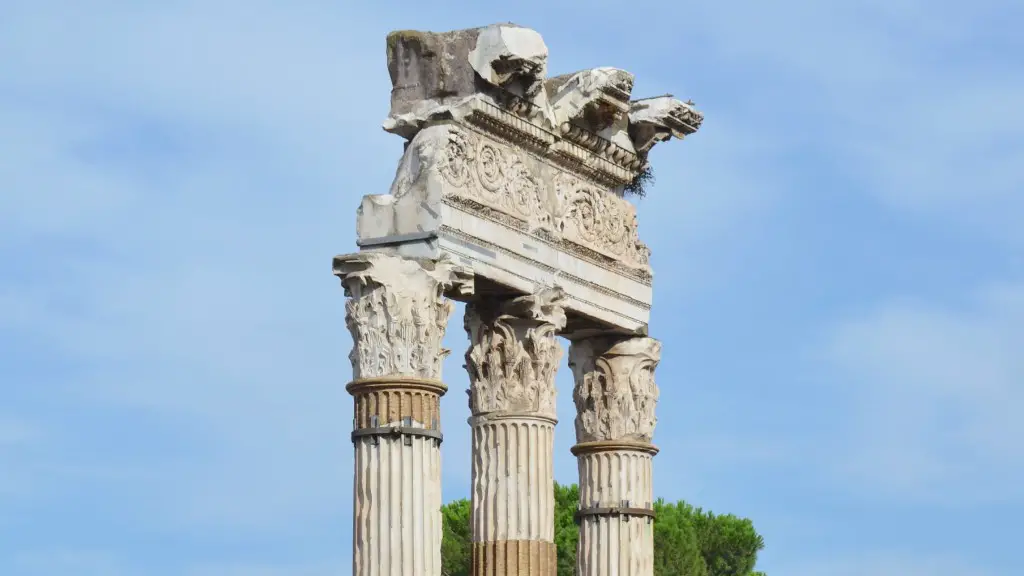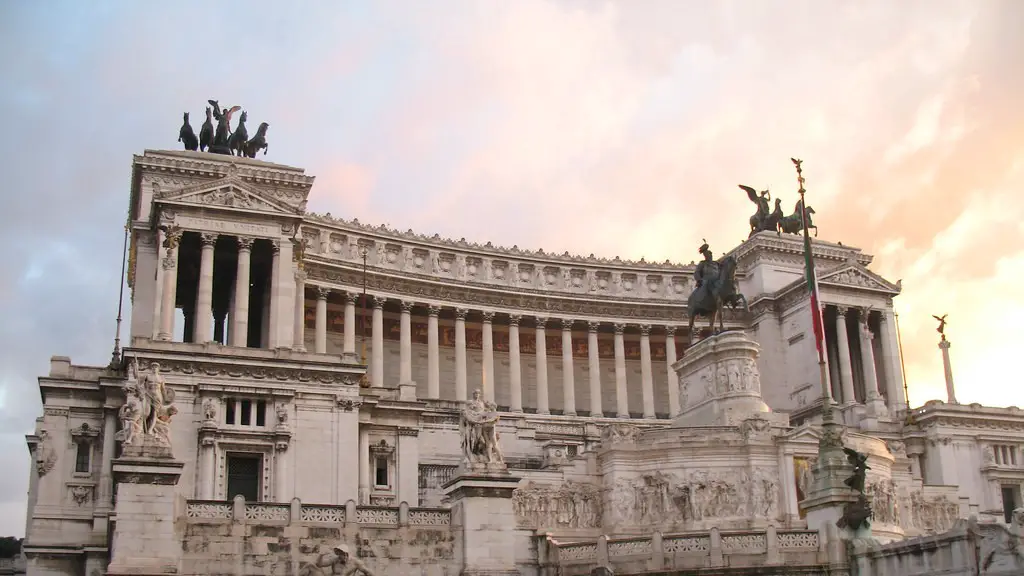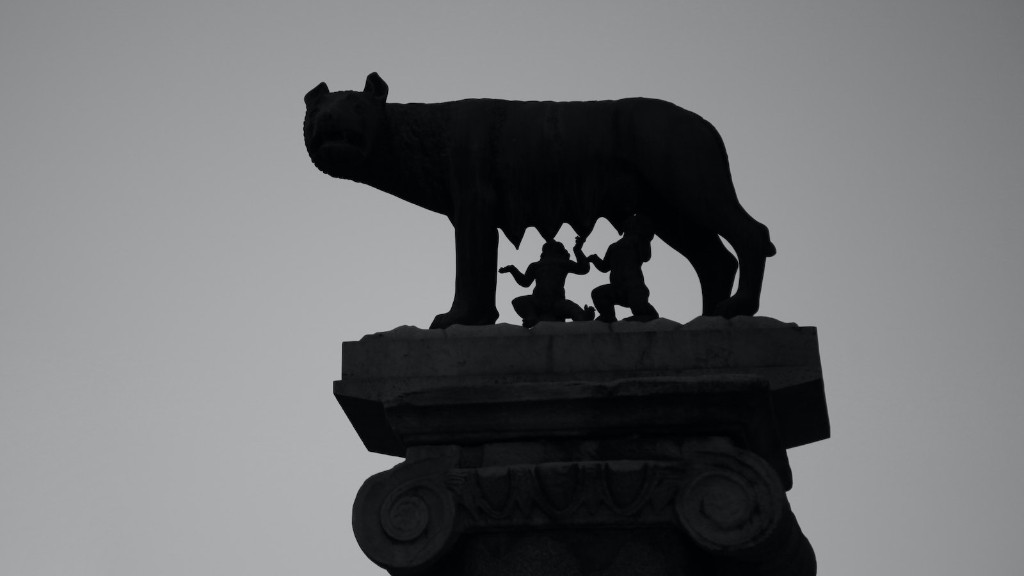Citizenship in Ancient Rome was a highly sought-after privilege. Roman citizens enjoyed a number of benefits and protections, such as the right to vote and the ability to own land, not available to non-citizens. As such, citizenship was highly desirable and the grant of it was controlled by the ruling elite. This is why it was so sought-after, but why was citizenship so valuable in Ancient Rome?
In Ancient Rome, citizens enjoyed more rights and freedoms than non-citizens, such as the right to vote, and access to public services such as welfare. Additionally, as Roman citizens were subject to different laws than non-citizens, this meant that citizens were in many cases exempt from certain taxes and could serve in the army for a shorter period of time. The more rights citizens had access to, the more incentive people had to become citizens.
In addition to the legal rights associated with citizenship, there was also a social status bestowed to Roman citizens. Being a citizen made a person stand out from the crowd and was seen as a mark of honour. It was also a mark of one’s success and wealth, as citizenship was not something freely given away. In many cases, it was only available to those with the wealth and influence to acquire it.
In addition to the legal and social benefits, citizenship in Ancient Rome also bestowed its citizens with a sense of belonging. As citizens, they could take part in the decision-making process and have their voices heard. This sense of belonging was also one of the driving forces behind why citizenship was so desirable in Ancient Rome, as it gave its citizens a greater sense of purpose and identity.
Moreover, in Ancient Rome, citizens were able to own land and make use of it for commercial activities. Citizen-owned land was highly sought after by merchants, as it was seen as a safe haven for investments. This led to a number of wealthy families emerging in Roman society, which in turn provided more incentives for people to become citizens.
Citizenship and Social Mobility
In Ancient Rome, citizenship was also seen as a way to advance in society and achieve social mobility. Non-citizens were often excluded from participating in certain activities or outright denied the right to vote, leaving citizen as the sole participants. This opened the door for social mobility and the possibility to rise in society, which was an attractive proposition for those seeking a better life.
Additionally, Roman citizenship gave its citizens the right to travel freely throughout the Empire, something non-citizens were not able to do. This gave citizens the opportunity to travel to new places, explore different cultures, and even partake in trade and commerce without any restrictions. This mobility was a major incentive for many people to become citizens, as it gave them a greater sense of freedom and autonomy.
The Cost of Citizenship
Though citizenship was desirable, it was not without its drawbacks. In Ancient Rome, citizens could expect to pay a hefty sum for their privilege. This could vary from a few hundred to thousands of sesterces, depending on one’s wealth. Though this might not seem like a lot in today’s terms, for many the cost was prohibitively high, making the right to citizenship a privilege only the wealthy and privileged could afford.
Conclusion
In conclusion, citizenship in Ancient Rome was a highly sought-after privilege due to the numerous legal, social and economic benefits it gave its citizens. It allowed citizens to take part in the decision-making process and have their voices heard, while providing a sense of freedom and autonomy that was not available to non-citizens. Though the cost of citizenship could be expensive, it was a price many were willing to pay for the numerous benefits that came with it.
The Role of the Senate
The Senate was an important part of the Roman government and played a key role in citizenship. The Senate was responsible for deciding who could become a citizen and had the power to grant citizenship to those they deemed deserving. Additionally, the Senate had the power to grant exemptions to those who could not afford the cost of citizenship, making it more accessible to those who may not have otherwise had the chance to become citizens.
The importance and influence of the Senate was reflected in the process of becoming a citizen. People had to go through a lengthy and sometimes complicated process in order to obtain citizenship. This was done to ensure that the Roman government was able to control who became citizens and that only those who were deserving and worthy could become citizens. As such, the role of the Senate was essential in ensuring the stability and integrity of Roman citizenship.
Citizenship and Marriage
In Ancient Rome, citizenship was often passed down from one generation to the next. As such, it was not uncommon for marriages to be arranged strictly for the purpose of obtaining citizenship for one’s family. This was especially common for those who sought to enter the upper echelons of Roman society, as it gave them access to the rights and privileges only available to citizens.
Though this practice was disapproved of by some, it was generally accepted by most people, as it was seen as a way of furthering one’s family’s prospects and fortunes. Additionally, this practice also allowed families to strengthen their political connections, as marrying into a family of citizens was often seen as a good way to do so.
The Lost of Citizenship
Though citizenship was highly sought after, it was not without its risks. In Ancient Rome, citizenship could be lost if certain conditions were not met. Examples include the failure to pay taxes in full, the refusal to perform military service or the failure to adhere to certain laws. If a person were to break one of these conditions, then their citizenship could be revoked, which was a risk many people were not willing to take.
Additionally, citizens were often removed from the citizen register if they failed to appear at the census. This was a severe punishment, as it resulted in the person being legally considered a non-citizen, and therefore stripped of the rights and privileges they had enjoyed as Romans.
Politics and Citizenship
In Ancient Rome, citizenship was often used as a political tool. Those in power often used it as a way to reward their supporters and punish their opponents, leading to people from certain classes or groups of people enjoying more privileges than others. This system allowed the ruling elite to stay in power, as those with citizenship would be more inclined to follow and support them, thus ensuring the continuation of their rule.
Moreover, citizenship was also used as a form of political bribery, with people being granted citizenship in exchange for loyalty. This was a common practice among the ruling elite, who would reward those who supported them with citizenship, while punishing those who opposed them by denying them access to the rights and privileges they enjoyed.
Overall, citizenship in Ancient Rome was a highly sought-after privilege due to the numerous legal, social and economic benefits it gave its citizens. Though the cost could be prohibitively high and it came with a number of risks, it was a price many were willing to pay for the numerous advantages it conferred. Additionally, its use as a political tool by the ruling elite allowed them to keep power and influence over the population, ensuring the continuation of their rule.




